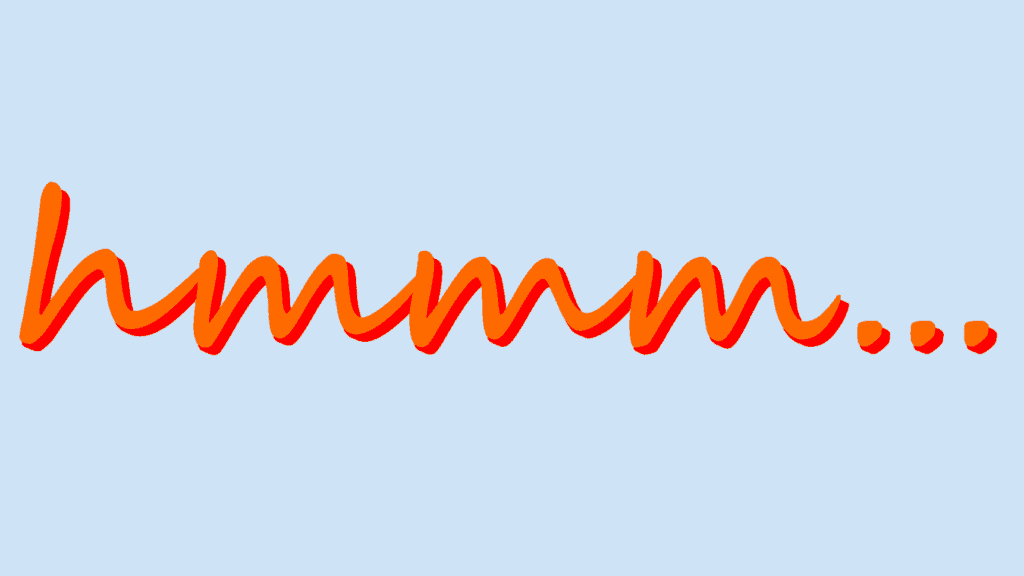
How many m’s in hm, hmm, hmmm, mm-hmm and mmm? When do you use these expressions in dialogue? Let’s take a look.
When writing dialogue in your novel, you want it to be realistic. And real people don’t always use proper words.
If you want to show expression of (dis)agreement, (dis)pleasure or certain other non-verbal cues, you’ll find yourself needing one of these treasures.
But how many m’s do you use? Two? Three? Is there even a right or wrong way to write these expressions?
Let’s take a look.
mm-hmm
Merriam-Webster has an entry for ‘mm-hmm’. Its definition is: “used to indicate agreement, satisfaction, or encouragement to continue speaking”.
In short, it usually means “Yes.” It could be seen as the closed-mouth version of ‘uh-huh’. Merriam-Webster cites the first use of ‘mm-hmm’ as 1934, but the first use of ‘uh-huh’ as 1858. Not sure what the significance of that is, but I thought it was a fascinating fact!
Interestingly, Lexico.com and Cambridge Dictionary Online don’t have an entry for ‘mm-hmm’, but they both have one for ‘uh-huh’.
‘Mm-hmm’ can be used to show that a character isn’t overly thrilled with an idea that is being suggested, or maybe they are very relaxed and don’t have the energy to sound more enthusiastic.
If someone is talking to them and they don’t see the need to say very much, but they want to sound interested or show that they are listening, ‘mm-hmm’ also works well.
How to spell mm-hmm
The spelling convention is two m’s, a hyphen, then one h followed by two m’s. If you want to make it clear that your character is pronouncing it in a more drawn-out way, you could add an m or two, but be aware that this will look unusual so only use it for a particular effect.
Examples of mm-hmm
- “Do you want to see a film tonight?” “Mm-hmm.”
- “I can’t believe what he did, can you?” “Mm-hmm.” “I mean, in broad daylight!” “Mm-hmm.”
As the two women in this video demonstrate, “mm-hmm” can be very versatile.
mm, mmm
A monosyllabic ‘mm’ or ‘mmm’ usually shows satisfaction. This can be with something your character is tasting, smelling or experiencing.
If you’re writing erotica, there may be a few of these peppered throughout your dialogue, and you can really experiment with the number of m’s, depending on how much your characters are enjoying themselves!
If you're writing erotica, experiment with the number of m's, depending on how much your characters are enjoying themselves! – Hm, hmm, hmmm, mm-hmm, mm, mmm (in-depth guide to their use in dialogue) Share on XMerriam-Webster doesn’t help us with spelling convention here. Its entry for ‘mmm’ is the abbreviation of ‘micromillimeter’, and ‘mm’ is given as the abbreviation of ‘millimeter’, so the dictionary doesn’t seem to acknowledge it as an interjection or expression.
Cambridge Dictionary doesn’t include it either, but good ol’ Lexico.com is happy to stick its neck out and tell us that ‘mm’ (“also ‘mmm’ “) is used to express:
- “contentment or pleasure”
- “agreement or approval”
- “uncertainty or reflection”

Spelling of mm, mmm
In general, use two or three m’s, whichever fits best with the expression or sentiment you want to convey. Of course, if you want to depict a long, drawn-out ‘mmmm’, put as many m’s as will float your boat, just be aware that it will stick out to the reader (that may be the effect you’re after).
In general the more m’s, the greater your character’s satisfaction. For example, if your character is scoffing a chocolate cake, you probably wouldn’t go for, “Mm, I can’t get enough of this cake.” You’d use “mmm”, or even “mmmm”!
Examples of mm, mmm
- “Mmm, these strawberries are so sweet!”
- “Mm, I know, I thought that as well.”
- “Mm, not sure I agree with you on that point.”
If you were wondering whether this expression has a name, Mel Brooks called it ‘the yummy sound’ in his 1974 film Young Frankenstein.
hm, hmm, hmmm
‘Hmm’ is described by Merriam-Webster as an interjection that is used to:
- “describe the action or process of thinking”
- “emphasize that one has asked a question and is now waiting an answer” (followed by a question mark)
- “request repetition or clarification of something just said” (followed by a question mark)
Merriam-Webster gives ‘hm’ or ‘hmmm’ as less common variants.
Lexico.com defines ‘hmm’ as an exclamation used “to express reflection, uncertainty or hesitation”. It gives no variation of spelling.
Cambridge Dictionary Online defines ‘hmm’ as “something you say when you pause when talking or when you are uncertain.” It gives ‘hm’ as a variant.
Woohoo, finally one of our expressions that features in all three online dictionaries I’ve selected for this blog post! (Other excellent online dictionaries are, of course, available.)
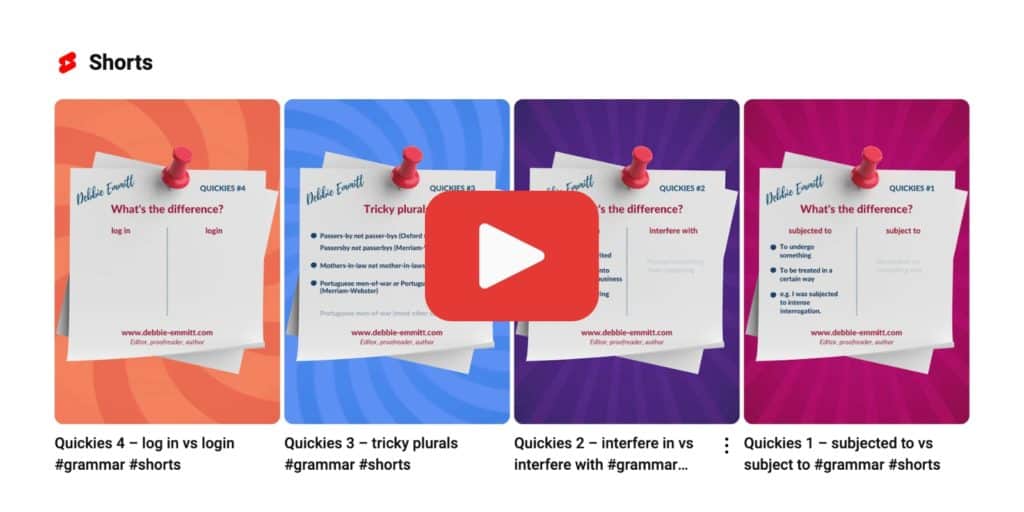
Spelling of hm, hmm
Use ‘hmm’ most of the time, with a shorter or longer form (‘hm’, ‘hmmm’ etc) to convey a particular effect).
Examples of hm, hmm
- “Hmm, let me think.”
- “Hmm, I’m not sure she’ll be coming.”
- “What did I tell you? Hmm? I said not to run in the corridor, didn’t I?”
- “Hmm? Did you say something?”
What next?
For a fun list of interjections and exclamations, including those in this blog post and many, many more, see Beth Hill’s brilliant list on The Editor’s Blog.
Remember: I’m an experienced editor and proofreader, and offer a line editing, copyediting and proofreading service. Drop me a line if you want to find out more!


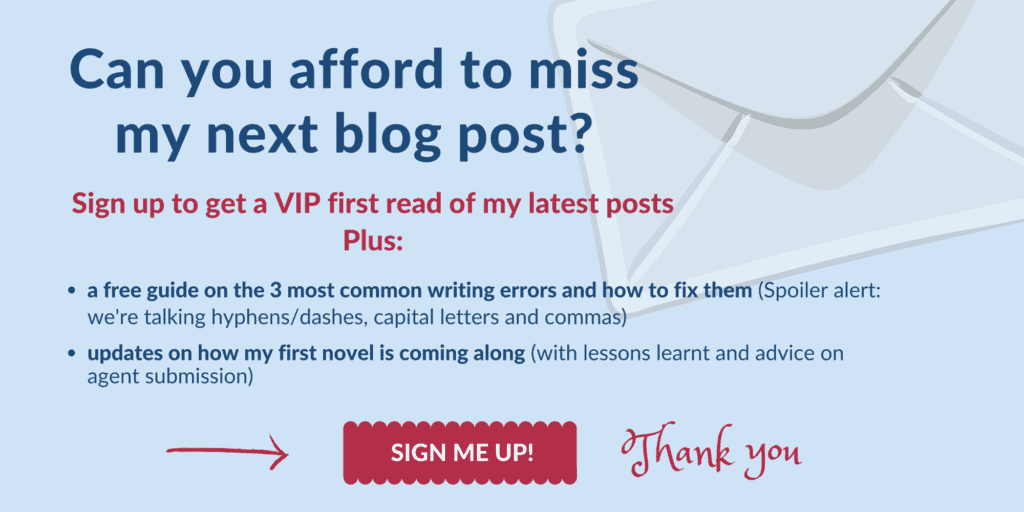
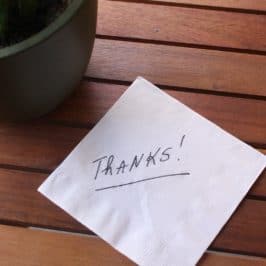
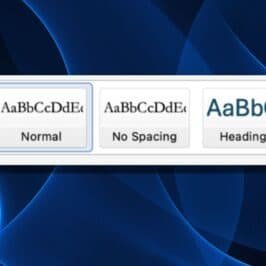




databang
Thank gawd for this article. No, seriously.
Debbie Emmitt
Umm, you’re welcome?
Stefani
This raises another issue, um vs. umm. Webster’s lists “um,” but I prefer the latter.
Debbie Emmitt
Good point! Maybe I should add another section to the post …
Ty Buchanan
What about “mnn”?
Debbie Emmitt
Hi Ty, I’ve never seen this used in dialogue. Can you give me an example? Is it a variation of “mmm”?
Paris
What about the one that means alertness? like “!”?
Debbie Emmitt
I would say that is a short “mm!” but it would help if you gave me a line of dialogue for context.
Paris
– and “Interesting!”
Debbie Emmitt
I know exactly what you’re referring to! It’s two/three ‘syllables’, the first or central one higher/more stressed than the other one or two. I’ve never seen this expressed in dialogue, but that isn’t to say we shouldn’t try! How about:
– “MM-mm”, she said, raising her eyebrows.
I’m not sure that’s quite right, but it’s a stake in the ground!
Walter Lewis
Do you know what the sound for no would be?
Debbie Emmitt
I would say, “Uh-uh,” rather than an mmm sound. If you could give me a line of dialogue for context, it would help. Thanks!
W.L. Hawkin
Thanks for this. I often use hmmm… and wonder if I need the ellipsis. What do you think?
Debbie Emmitt
Hi, thanks for your question! You can either use the ellipsis or not, it’s entirely your choice. I would say that the ellipsis makes it look as if the ‘hmm’ is trailing off, and/or that there is a longer pause before the speaker continues, so it depends on what you want to convey.
Lee
Thank you for the info!
If mmm needs to be past tense, would it be mmm’d or mmmed?
E.g. They mmm’d/mmmed with delight at the deliciousness.
Debbie Emmitt
Great question! I’m not sure it can be a verb. Would we say someone mmm’d or mmmed with delight? It would probably be better to find another way of saying it, e.g. They hummed with delight. This doesn’t sound quite right to my ear either, but apparently that is the name for the sound ‘mmm’! https://ell.stackexchange.com/questions/174976/can-hmm-mmm-considered-as-humming
Micheal
I have characters in my book who sometimes use a laugh, chortle, or giggle that is somewhat muted (like chuckling with your mouth closed). I was using hm hm hm or hm, hm, hmm in succession to get the sound of it. Does this work?
Ha, he he, ti he he, and such are the wrong sounds.
Debbie Emmitt
Hi Micheal, without reading it in context, it’s hard to say, but I would suggest that readers may not grasp what you want to convey, unless it’s clear from the rest of the paragraph. Would it work if you were to describe the laugh instead, rather than conveying it through dialogue? e.g. “He chuckled behind closed lips.” or “She gave a muted laugh.” Not sure if either of these is exactly right, but you get the idea!
Noelia Arakaki
Hola! Ese Mm-Hmmm, ¿se usa también en español? ¿O es exclusivo del inglés?
Debbie Emmitt
Hmm, no se … hablo poco español. ¿La pregunta esta aqui? https://www.reddit.com/r/Spanish/comments/443h69/spanish_hmm_or_euhhh/
Grace
Thanks for this! Looking up how to use interjections or filler words in dialogue often only results in advice basically saying not to use them whatsoever (referring to um’s, and uh’s, etc) which is just plain unhelpful for when it’s important to a character’s voice. So, again, glad I found this, would love a similar article on using other similar words!
Debbie Emmitt
Hi Grace, I’m so glad you found it helpful! Absolutely, there are times when hmms and hmmms are called for! If you have particular words you’d like to see spelled out (pun intended!) in future articles, just let me know.